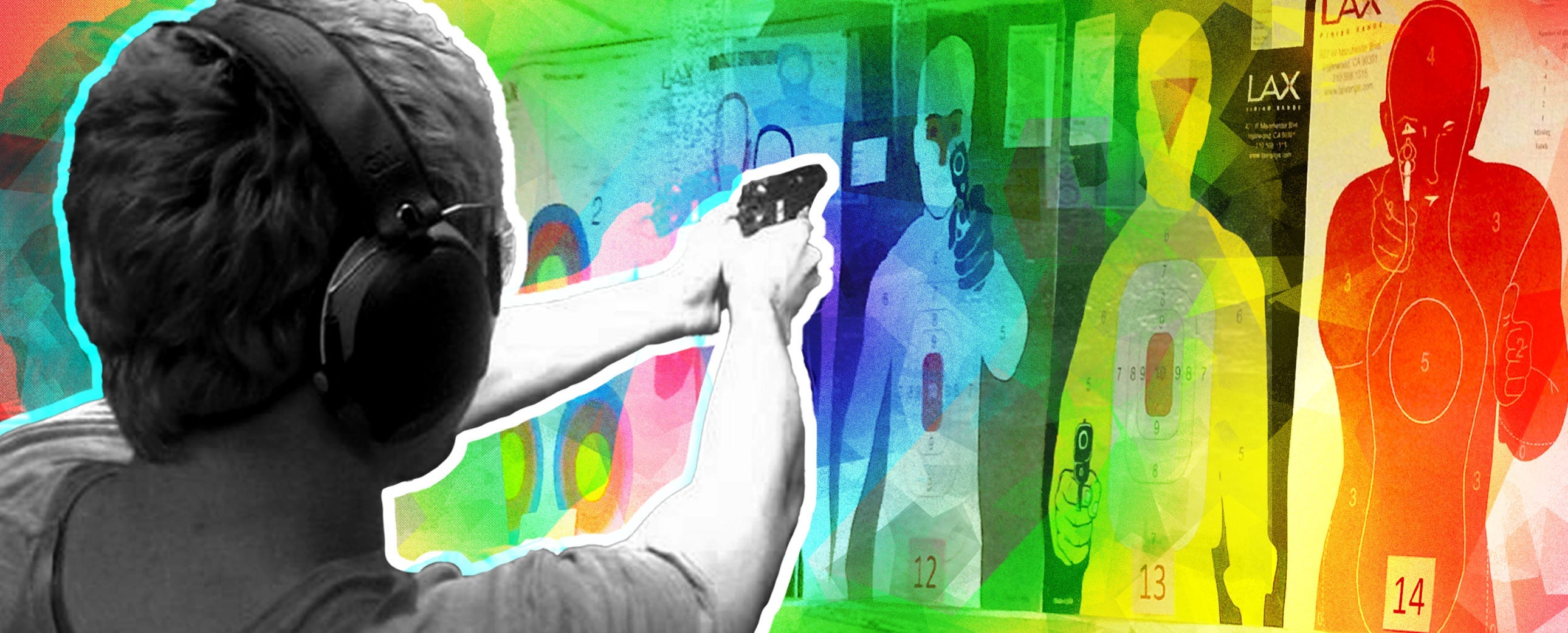My Journey Into the Secret Subculture of Gays With Guns
With anti-LGBTQ hate crimes on the rise, groups like the Pink Pistols have seen membership soar. After an attack in my hometown, I understood their need to defend themselves.
A little over a year had passed since the Pulse nightclub shooting in my hometown of Orlando when I stumbled upon the group on Meetup.com. Its profile picture stood out among the book clubs and amateur sports leagues using generic clip art to advertise themselves. This one featured a silver bullet, the tip of it fire blue, next to the words “Gays with Guns.”
It sounded like an oxymoron. How could any self-respecting gay person support guns? The names of the 49 queer, predominantly Latinx people I used to spend nights dancing with were still fresh in my mind. So was the fact that the shooter, a man who’d previously been on an FBI watch list, was able to buy a semiautomatic rifle as easily as if it were a Snickers bar. Even before the attack, LGBTQ people were already the most likely targets of hate crimes in America. Gays with Guns simply didn’t make sense. I clicked on the group’s profile and discovered that their next meeting w…
Keep reading with a 7-day free trial
Subscribe to Narratively to keep reading this post and get 7 days of free access to the full post archives.




